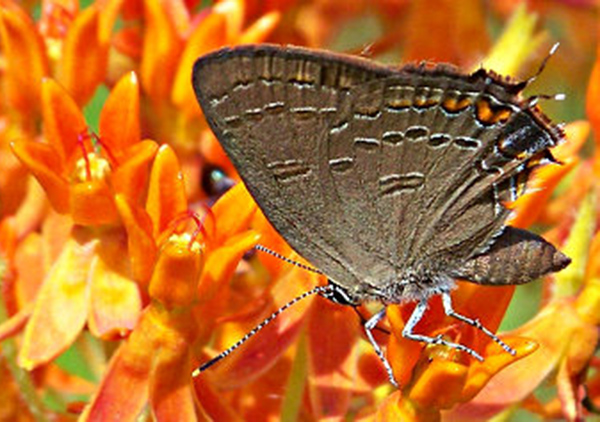I think, therefore I EXPLORE
Meet Ecologist Prof. Steve Yanoviak
Department: Biology
Years at UofL: 4
While many people are working on their tan or taking a family roadtrip, Prof. Steve Yanoviak (Biology) is spending his summer hoisted high above the rainforest floor in the tree canopies of Barro Colorado Island, Panama. Dr. Yanoviak, a tropical ecologist, specializes in researching the ecology and behavior of rainforest insects. With a steadily growing team of admiring undergraduates and graduates working alongside him, he divides his time between the classrooms on Belknap campus and the labs and forests of Barro Colorado.
In this Q&A, we discover that unsurprisingly things can go awry when you’re researching abroad and that no matter what happens, follow your dreams.
Research interests:
My research focuses on the ecology and behavior of insects inhabiting the tropical rainforest canopy. This uppermost layer of the rainforest supports incredible biodiversity, and we are just beginning to understand how that diversity changes in space and time.
Current major projects in my lab address three questions: 1) How do the physical and environmental challenges of the canopy shape the characteristics of its animal inhabitants?; 2) What is the relationship between the diversity of canopy ants and the presence of vines in trees?; and 3) Is lightning an important agent of tropical tree mortality, both directly and as an attractor of insects? Each of these questions is relevant to conservation.
For example, vines are becoming more abundant in tropical forests, and research in my lab is helping us understand the potential effects of that increase on canopy insect diversity. Likewise, the frequency of lightning strikes is expected to increase (especially in the tropics) with climate change, and our results will provide a framework for measuring the ecological effects of that increase on both trees and insects. Finally, discoveries like gliding ants (see www.canopyants.net) serve as a good reminder that there is still a lot that we do not know about the rapidly changing world around us.
Most memorable class as an undergraduate?
Field Biology. This class fascinated me and challenged me like no other, and it solidified my interest in becoming an academic field biologist. The professor, Dr. George Folkerts (deceased), was an amazing teacher and mentor, and a wonderful person.
Biggest achievement of you career so far?
Philosophically, the biggest achievement has been making discoveries (like gliding ants) that interest and inspire a broad range of people. It is very satisfying to see your own work appear in high school and college textbooks. Academically, my biggest achievement was receiving a Career Development Award from the National Science Foundation. This funding has given me the freedom and resources to explore new ideas. Practically, my biggest achievement was getting hired at UofL. There is no greater professional satisfaction than having a job you like in a place you like.
Most thrilling or adventurous thing you’ve ever done?
This is difficult to answer because every day in the rainforest is thrilling to me. I have also visited and lived in many foreign countries, and each of those destinations proved to be an adventure in one way or another. One of the more memorable trips was an exploratory excursion with a few herpetologists to Malpelo Island – a small, barren island owned by Colombia in the Pacific Ocean 300 miles south of Panama. In a nutshell, many things went wrong on this trip, including a seasick crew struggling to fix a stalled motor in rough, shark-infested seas. We eventually arrived on Malpelo after some wrangling and unofficial negotiations with the Colombian Coast Guard, and ultimately had a wonderful time there – which is the part I remember best. However, this trip will always stand out in my mind because there were a few moments when I was genuinely concerned that it would end very abruptly and very badly.
The last book you read, and why?
I am nearly finished with Shop Class as Soulcraft by Matthew Crawford. My father is a civil engineer, and I spent much of my childhood either building things with him, or watching things being built. Consequently, I have always enjoyed working with my hands (woodworking is one of my hobbies). I admire good craftsmanship and enjoy the satisfaction of a job well done, and I was curious to read Crawford's ideas on this subject. Although I do not agree with many of Crawford's opinions, we are similar in our belief that it is fundamentally important to have some practical knowledge of how things work.
Advice for students?
Do something you are passionate about. Don't let fear of failure get in the way of a good idea. Unplug.

